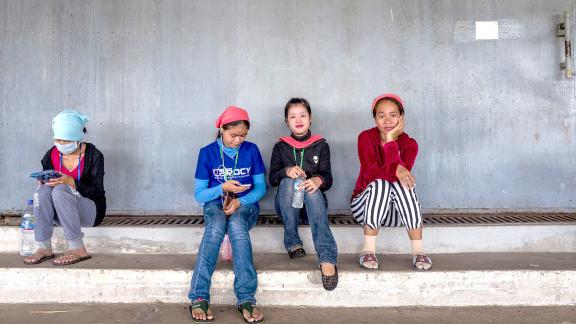What is the IPPF Japan Trust Fund?
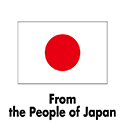
The IPPF Japan Trust Fund (JTF) represents a visionary partnership that began in 2000 between the Government of Japan and IPPF. Together, we invest in programmes that prioritize health equity, gender equality and human security for all.
Traditionally a driving force behind IPPF's effort to support the integrated HIV prevention programmes of our Member Associations in Asia and Africa, JTF has since adjusted to reflect changing global health priorities. JTF attaches importance to universal access to sexual and reproductive health and rights – an essential contributor to Universal Health Coverage and the Sustainable Development Goals.
JTF enables Member Associations worldwide to participate in a competitive bidding process and implement projects that have an important and sustainable impact on the lives of under-served groups and crisis-affected populations. Examples of projects funded by JTF include: introducing cervical cancer screening and care into the service package offered to women living with HIV; promoting gender equality and reducing gender-based violence by empowering women and girls from vulnerable communities to claim their sexual and reproductive health and rights; and, strengthening national preparedness for reproductive health in crisis situations.
Recent projects
View projects
143 projects implemented worldwide by
54 Member Associations and 3 Regional Offices
Bangladesh
Preventing HIV/AIDS and reducing the prevalence of reproductive tract and sexually transmitted infections among sex workers (2004 - 2005)
With HIV infection rates set to rise dramatically in Bangladesh, the Japan Trust Fund supported a project that focused on HIV prevention among sex workers in parts of the country where there are well-developed sex industries and communities vulnerable to sexually transmitted infections.
Prevention of impending HIV/AIDS among intravenous drug users (2004 - 2005)
With HIV infection rates set to rise dramatically in Bangladesh, the Japan Trust Fund supported a project that focused on HIV prevention among intravenous drug users.
Advocacy among the garment factory owners and management to initiate programme on reduction of sexually transmitted infections and prevention of HIV among factory workers (2002)
Botswana
Advocacy directed towards education authorities and community leaders for incorporating HIV/AIDS prevention activities for schools in Kanye (2001)
Burundi
Reaching vulnerable people with quality and rights-based integrated sexual and reproductive health and rights and HIV information and services in crisis (2020-2021)
Humanitarian crises expose weaknesses in health systems, jeopardizing access to sexual and reproductive health and rights. In Burundi, heavy rains, landslides and floods have cost lives and destroyed homes. Compounded by political and economic instability, a large number of this small country's population have been forced into a situation of homelessness and significant vulnerability. The Association Burundaise pour le Bien-Etre Familial has received funding from the Japan Trust Fund to improve access to sexual and reproductive healthcare for internally displaced persons and the host communities impacted by the humanitarian crisis.
HIV testing and care for opportunistic and sexually transmitted infections among returnee and demobilized populations as well as Congolese refugees (2007-2008)
Reduction of the transmission of HIV and other sexually transmitted diseases in Bujumbura, Gitega and Ngozi (2002)
Cambodia
Improving access to integrated sexual and reproductive health and HIV services for factory workers (2013 - 2015)
In Cambodia, a large proportion of the garment industry workforce are young, migrant, female and unmarried. Studies have shown that over half of garment factory workers reported having received treatment for a sexually transmitted infection (STI) and only a small percentage of them were able to identify signs and symptoms of STIs. With support from the Japan Trust Fund, the Reproductive Health Association of Cambodia implemented a project to improve access to integrated reproductive health and HIV services to this population.
Increasing access to integrated sexual health and HIV services for men who have sex with men in Phnom Penh (2010 - 2012)
Increasing access to voluntary counselling and testing (VCT) and reproductive tract infection (RTI) services (2005 - 2006)
Know your HIV status: HIV intervention for young entertainers in Cambodia (2005 - 2006)
Reaching indirect sex workers to reduce the spread of HIV/AIDS in Phnom Penh (2001 - 2002)
Cameroon
Integration of cervical cancer screening and care into the service package offered to women living with HIV in CAMNAFAW’s clinics (2018 - 2019)
Sexual and reproductive health of people living with HIV: A way out (2007 - 2009)
Youth AIDS positive behaviour (2005 - 2007)
Youth AIDS media (2002)
Cameroon National Planning Association for Family Welfare (CAMNAFAW)
Chad
Capacity building and technical assistance for the management of an HIV prevention and care programme for refugees in Southern Chad (2008 - 2009)
China
Today, tomorrow: Reduction of stigma facing men who have sex with men in China (2006 - 2007)
On the fast track: HIV/AIDS prevention among truck drivers in Yanshan (2005 - 2006)
HIV prevention life skills training for rural out-of-school adolescents (2003)
With the HIV prevalence rate growing at alarming rate -- driven by a lack of information and awareness, low adult literacy, migration and poverty -- the Japan Trust Fund supported a project implemented by the China Family Planning Association to deliver HIV prevention and life planning skills to out-of-school youth and students in secondary and higher education.
Behaviour change communication for HIV/AIDS prevention among commercial sex workers in Zhangjiajie City (2003)
Rural educational movement on HIV prevention by utilizing CFPA's network (2002)
HIV prevention education for rural young adults (2001)
Cote d'Ivoire
Meeting the needs of people living with HIV and AIDS (2006 - 2007)
Advocacy for STIs/HIV/AIDs prevention among taxi drivers in Abobo communes (2003)
Fidel and Abstinia: Fidelity and abstinence among youths (2002)
DRC
Strengthening access to integrated sexual and reproductive health law and services for Pygmy indigenous peoples in the province of Equateur (2017 - 2018)
The Democratic Republic of the Congo (DRC) records high maternal and child mortality rates, a generalised HIV epidemic, and high unmet need for sexual and reproductive healthcare. Health outcomes are believed to be much worse among DRC’s indigenous pygmy populations in Equateur province when compared to the rest of the DRC. Supported by the Japan Trust Fund, this project implemented by the Association de Bien-Etre Familial – Naissances Désirables facilitated access to integrated sexual and reproductive health and rights among the female pygmy population.
Association de Bien-Etre Familial – Naissances Désirables (ABEF-ND)
Eritrea
Reducing barriers to use of condoms (2005 - 2006)
Advocacy for HIV/AIDS prevention for ground force commanders at the Sawa national service training centre (2002)
Ethiopia
Addressing the under-served: Sexually transmitted infection prevention services for rural youth in areas surrounding Kemessie and Debre Markos (2006 - 2008)
Serving the under-served: Rural migrant young girls (2006 - 2008)
Advocacy for HIV/AIDS prevention among factory workers in Nazareth (2003)
Gambia
Community mobilisation and mainstreaming HIV and AIDs (2006 - 2008)
Advocacy for HIV prevention for bank employees (2002)
Ghana
Improving delivery of sexual and reproductive health services through public, private and civil society partnerships (2014 - 2017)
Improving access to reduce maternal and infant mortality through the provision of safe motherhood, child survival and sexual and reproductive health services in the northern region of Ghana (2013 - 2015)
Women, especially girls, in sub-Saharan Africa have a poor reproductive health status compared to their counterparts in other regions of the world. Access to health services is especially challenging in rural areas. The Japan Trust Fund supported efforts by the Planned Parenthood Association of Ghana to improve health outcomes for women and girls through a community outreach approach that included the introduction of Panasonic solar lanterns across 20 villages in the northern region of Ghana. The lanterns enabled health professionals to deliver community-based reproductive and maternal health services safely during the night and community members to gather for information and education sessions after dark.
STI/HIV/AIDS Prevention among prison inmates in Kumasi Central Prisons (2004 - 2005)
Prisons can often be the setting for several factors that increase the vulnerability to HIV of the inmate population. These factors include injecting drug use and the risk of rape or sexual assault. With support from the Japan Trust Fund, the Planned Parenthood Association of Ghana brought prevention and care to prison inmates in the Kumasi region of Ghana.
Strengthening HIV/AIDS voluntary counselling and testing services within PPAG (2003)
India
Community action for sustainable and inclusive growth: Increasing access to sexual and reproductive health through a gender equality and women's empowerment approach for marginalized women in India (2018 - 2020)
Violence against women and girls in India is widespread. With support from the Japan Trust Fund, the Family Planning Association of India implemented a project to empower women from vulnerable and marginalized communities in six districts of Uttar Pradesh, Madhya Pradesh and Rajasthan to realise their sexual and reproductive health and rights. In addition to increasing access to reproductive health services, the project empowers women by enhancing their employable skills through income generation programmes.
Preventing maternal deaths and promoting child survival by supporting elimination of mother-to-child transmission of HIV (2013 - 2015)
HIV prevention, treatment and care services for construction workers of the Chennai Metro Project (2010 - 2012)
Addressing stigma and positive prevention among people living with HIV (2010 - 2012)
In India, an estimated 2.4 million people were living with HIV in 2009. With support from the Japan Trust Fund, the Family Planning Association of India implemented a project to improve the sexual and reproductive health and quality of life for people living with HIV, particularly men who have sex with men and transgender people. The project was instumental in increasing understanding of how to meet the positive prevention needs of people living with HIV. A comprehensive approach - that includes sexual and reproductive health services, addresses stigma and discrimination and encourages economic empowerment - is key.
Expanding access to sexual and reproductive information and services to key populations in four locations (2008 - 2010)
Addressing the sexual and reproductive needs of injecting drug users and their sexual partners for HIV prevention (2006 - 2008)
Pathways to HIV/AIDS prevention among migrant communities (2004 - 2005)
Advocacy for empowering women for HIV/AIDS prevention (2004 - 2005)
Advocacy for youth: HIV/AIDS information counselling corners (2003)
Education, counselling and control of sexually transmitted infections, including HIV, for truckers and intravenous drug users (2001 - 2002)
Advocacy for creating an enabling environment for implementing sexuality education in schools with special emphasis of sexually transmitted infections and HIV prevention (2001)
Indonesia
Comprehensive SRH and HIV prevention programme among mothers and babies in the remote Jayapura district of Papua (2012 - 2015)
Papua province, with its difficult highland terrain and differing quality of healthcare services, has a much higher maternal mortality rate when compared to the national average. With the support of the Japan Trust Fund, the Indonesia Planned Parenthood Association launched a project to improve maternal and perinatal outcomes in the Jayapura district, targeting remote villages. The project followed the ‘EMBRACE’ model promoted by the Japan Global Health policy which aims to strengthen community-based preventive and clinical interventions to provide antenatal and postnatal continuum of care.
STI and HIV promotion, prevention, diagnosis and treatment programme among construction workers of the Tanjung Priok Access Road Construction Project (2008 - 2010)
Iran
Reaching the unreached: Comprehensive sexual and reproductive health services for refugees in Tehran (2010 - 2012)
Kenya
Integrating HIV prevention and positive prevention for women and men in Nakuru district (2010 - 2012)
With support from the Japan Trust Fund, Family Health Options of Kenya implemented a project in Nakuru district to address positive prevention for people living with HIV and to increase access to clinic services.
Voluntary counselling and testing for the 'Jua Kali' community (2005 - 2006)
Expanding voluntary counselling and testing (VCT) and sexually transmitted infection (STI) services in Kenya (2005 - 2008)
Promoting youth-friendly voluntary counselling and testing services (2004 - 2005)
Promoting positive behaviour change among youth (2003)
The HIV epidemic in Africa places a heavy burden on young people, who often do not have the resources or skills to access HIV services and information. In 2003, Family Health Options of Kenya (FHOK), formerly Family Planning Association of Kenya (FPAK), implemented a project supported by the Japan Trust Fund to provide youth-centered HIV-related services at the FPAK clinic in Kisumu.
Advocacy directed towards Ministry of Education officials and parents to support peer youth education on HIV/AIDS in upper primary schools in Nakaru (2003)
Lao PDR
The new hope for people living with HIV in Bokeo Province (2006 - 2008)
Bridge of Hope: HIV prevention for construction workers and communities at the Second Mekong International Bridge on the border of Lao PDR and Thailand (2004 - 2005)
The construction sector attracts a large number of migrant workers who are often at increased risk of acquiring HIV infection and more likely to pass on the infection to others at their source communities. The Japan Trust Fund supported a project to promote HIV/AIDS awareness and prevention among temporary workers and the local community during the construction of the Second International Mekong Bridge connecting Lao PDR and Thailand.
Promotion of Family Health Association of Lao PDR (PFHA) Planned Parenthood Association of Thailand
Lebanon
Reducing maternal and reproductive health morbidities and mortality among Syrian refugees and host communities in Bekaa, Lebanon
Lesotho
Mphatlalatsane (Morning Star): Reducing the vulnerability of women engaged in sex work to HIV and sexual and reproductive ill health (2011 - 2013)
Women fighting HIV/AIDS: Promoting the female condom (2001)
Liberia
Advocacy initiative for policy makers and opinion leaders on HIV/AIDS prevention and control (2002)
Republic of North Macedonia
Family doctors – Partners in expanding access and choice to contraception and Sexual and Reproductive Health Services
Madagascar
Prevention and treatment of sexually transmitted infections while contributing to reduction of stigmatization and discrimination of people infected with HIV (2004 - 2005)
Malawi
Strengthening integration and linkages between clinic based and community based sexual and reproductive health and HIV services (2016 - 2018)
In Malawi, adolescent girls and young women are especially vulnerable to HIV infection. With support from the Japan Trust Fund, the Family Planning Assocation of Malawi implemented a project to reduce HIV vulnerability among young women and girls in Mangochi's fishing communities. The project established the Mangochi Youth Life Centre, which enabled youth to access reproductive health services without fear of stigma or discrimination.
Continuum of care and support for young HIV positive Malawians in promoting positive living (2009 - 2011)
The potential benefits of investing in HIV programmes catering to the needs of young Malawians living with HIV are immense. This was recognised by the Family Planning Association of Malawi (FPAM) which implemented a two year programme focusing on youth, with support from the Japan Trust Fund.
Vending with hope at Malawi's markets (2006 - 2008)
Sexually transmitted infections (STIs), including HIV, contribute greatly to Malawi's sexual and reproductive health burden. An assessment of 161 young vendors trading at Mitundu market revealed that 20 per cent had contracted an STI, 50 per cent had had unprotected sex on at least one occasion, and of the 30 per cent who had had sex with a sex worker only 13 per cent had used a condom. With support from the Japan Trust Fund, the Family Planning Association of Malawi implemented a project to deliver STI- and HIV-related services to young vendors at Mitundu market.
Reaching out to youth in the market place (2004 - 2005)
Promoting STI treatment seeking behaviour among youth (2003)
Malaysia
Increasing access to sexual and reproductive health services and rights for the refugee communities in the Klang Valley (2009 - 2011)
Safeguarding the sexual and reproductive health and rights of the displaced persons from Rakhine State in Malaysia
Federation of Reproductive Health Associations of Malaysia (FRHAM)
Maldives
Strengthening national preparedness for sexual and reproductive health in crisis situations (2017 - 2019)
The Maldives is exceptionally vulnerable to climate change and its effects. The unique geography of the country and the widely dispersed nature of the population pose particular challenges during emergencies. There is a lack of access to basic emergency obstetric services and only a very small proportion of deliveries are attended by skilled providers, leading to unnecessary maternal and child disability and death. With support from IPPF's Japan Trust Fund, the Society for Health Education in the Maldives advocated for the inclusion of a Minimum Initial Service Package (MISP) into the Maldives’ National Disaster Management Plan, so it is a recognized priority when disaster strikes. The MISP for Reproductive Health in Crises guides life-saving health services to affected communities from the onset of crises.
Community based advocacy on sexually transmitted infections, including HIV/AIDS and STIs (2004 - 2005)
Mauritania
Reducing the incidence of maternal and infant mortality and HIV and AIDS prevalence among the population living in the area of Rosso Kaedi (2013 - 2015)
Mongolia
Provision of voluntary counselling and testing (VCT) and STI management services at five youth centres in Mongolia (2008 - 2010)
HIV/AIDS education for dormitory university students in Ulaanbaatar City (2002)
Morocco
Access to sexual and reproductive health and HIV services for young agricultural workers in the Tangiers-Al-Hoceima and Souss Massa regions (2016 - 2018)
The agricultural industry is an important source of employment in rural Morocco, and many of its workers often have to travel long distances to access sexual and reproductive services. With support from the Japan Trust Fund, the Association Marocaine de Planification Familiale was able to conduct mobile clinics to meet the reproductive health needs of young agricultural workers in Tanger-Al-Hoceima and Souss Massa. Key strategies included reaching young workers through a youth peer education approach and encouraging agribusiness and farm owners to implement workplace policies that support workers seeking sexual and reproductive healthcare.
Seamen: between gender-based violence and lack of services
Mozambique
Rights guaranteed: Access to integrated health services without discrimination (2019-2020)
Being SAFE: Sexual and reproductive health and HIV services for female sex workers and their clients in Manica and Gaza (2009 - 2011)
Reduction of stigma and discrimination against people living with HIV/AIDS in the mining community of Magude (2004 - 2005)
Stigma and discrimination are a frequent reaction against people living with HIV. To improve the quality of life among miners living with HIV in the Magude district of Maputo Province, the Associação Moçambicana para Desenvolvimento da Família implemented a project supported by the Japan Trust Fund to deliver HIV-related services (including home based care), challenge social and cultural attitudes towards HIV positive people, and increase awareness of HIV/AIDS.
Associação Moçambicana para Desenvolvimento da Família (AMODEFA)
Myanmar
Advocacy directed towards decision making bodies/authorities on HIV/AIDS prevention in Tamu township (2001)
Namibia
Prevention of HIV/AIDS/STIs among youth in and out of school and women of childbearing age in Amusati region (2003)
Nepal
Enhancing availability and women's access to integrated sexual and reproductive health-HIV services in earthquake affected districts of Nepal (2019 - 2021)
The 2015 earthquake in Nepal resulted in a humanitarian crises with far reaching consequences for the estimated two million women in need of sexual and reproductive healthcare. With support from the Japan Trust Fund, the Family Planning Association of Nepal implemented a project to enhance access to sexual and reproductive healthcare, including HIV-related information and care, to women in earthquake-affected settings.
Increasing access to and utilization of integrated SRH MNCH and HIV services by vulnerable women in Kailali, Dang, Nawalparasi and Kavre Districts of Nepal (2013 - 2015)
Sexually transmitted infection prevention among female sex workers in conflict prone districts of Western and Far Western Nepal (2006 - 2008)
Setting up stigma-free clinics for young people living with HIV at Itahari Family Health Centre, Sunsari District (2006 - 2008)
Sexually transmitted infections, HIV prevention among minority Badi female sex workers in Nepal (2005 - 2006)
Integration of HIV/AIDS voluntary counselling and testing services into FPAN's clinics (2004 - 2005)
To reduce the incidence of HIV among vulnerable groups, the Family Planning Association of Nepal, with support from the Japan Trust Fund, integrated voluntary counselling and testing services into existing sexual and reproductive programmes.
Prevention of HIV programme for newly recruited police personnel (2002)
Integration of STI services into FPAN clinics (2001)
Nigeria
Securing the future: Preventing HIV infection among female students at the University of Abuja (2006 - 2008)
Private sector initiative for HIV prevention (2001)
Pakistan
Healthy Mother–Healthy Baby: Strengthening delivery of maternal, neonatal and child health services at nine Family Health Clinics in Gilgit – Baltistan (2012 - 2014)
The Saheli project: Sexual and reproductive health and HIV services for female sex workers (2009 - 2011)
HIV prevention among truckers and associated populations of Badami Bagh Truck Terminal, Lahore (2005 - 2006)
Strengthening the Member Association's system for STI/HIV/AIDS awareness and prevention among high risk groups (2003)
Advocacy for STIs/HIV/AIDs prevention among youth (2003)
Rahnuma (formerly the Family Planning Association of Pakistan, FPAP)
Palestine
Improving reproductive health/maternal and child health knowledge and services in Hebron, Halhoul, Tulkarem and Gaza Districts (2011 - 2012)
In Palestine, access to reproductive health, including maternal and child health, services in remote areas is shaped, to a large extent, by the current political situation, characterized by on-going conflict, continued area closures, and varying degrees of unrest. The socio-economic levels, lifestyles and women’s position in Palestinian society is also a key determinant of demand for and access to these services. With support from the Japan Trust Fund, the Palestinian Family Planning and Protection Association implemented a project to improve reproductive, maternal and child health services and to increase knowledge among marginalized people in Hebron, Halhoul, Tulkarem and Gaza districts.
Improving reproductive, maternal and child health knowledge and services in Hebron, Tulkarem and Gaza Districts (2007 - 2009)
Palestinian Family Planning and Protection Association (PFPPA)
Papua New Guinea
Mainstreaming HIV/AIDS (2006 - 2007)
Intervention among mobile and unemployed youth in PNG (2005 - 2006)
Philippines
Providing health information and services to existing and/or returned internally displaced people in Mindanao through the MISP of SRH and HIV in crises (2011 - 2013)
Rwanda
Strengthening capacities of returnees in the fight against STI/HIV/AIDS, gender-based violence and promotion of community family planning (2011 - 2012)
Mainstreaming sexually transmitted infections among refugee populations in Rwanda (2007 - 2009)
HIV prevention in Rwandan prisons (2002)
Samoa
Increasing SRH services through public/private partnerships and increasing access to integrated care for poor and vulnerable people in Samoa (2015- 2017)
Senegal
Ensure regular access to SRH for mothers and their babies (EMBRACE) (2013 - 2015)
Seychelles
HIV and STI prevention and control among youth in Mahé (2002)
Sierra Leone
Scaling up access to integrated HIV and comprehensive sexual and reproductive health services for the hard to reach communities in Sierra Leone: A rights-based approach (2020 - 2021)
South Africa
Implementation and advocacy plan for small, medium and microenterprises in the Gauteng and Kwa Zulu Natal provinces (2002)
Sudan
Increasing access to sexual and reproductive health services for women of reproductive age, including pregnant women living with HIV in Meddani, Gedarif and Nyala to contribute to reduction in maternal mortality rates in Sudan (2015 - 2017)
Swaziland
Enhancing sexual and reproductive health and rights for women living with HIV (2012 - 2015)
Tanzania
Strengthening linkages between community- and facility-based integrated sexual and reproductive health, including maternal and child health and HIV services in Unguja and Pemba (2015 - 2018)
Tanzania suffers from high levels of maternal morbidity and mortality. Young women and girls under 24 years of age continue to be disproportionally affected by HIV and sexual and reproductive ill-health, often as a result of the interplay between gender inequality, a lack of social and economic empowerment, taboos around young people’s sexuality and limited access to integrated youth friendly SRH services. With support from the Japan Trust Fund, this project built links between communities and clinics in Unguja and Pemba (Zanzibar) where women and girls are especially under-served.
Fighting STI/HIV/AIDS social stigma through strengthening prevention and care (2004 - 2005)
Behaviour change communication for HIV prevention among young people (2002)
Advocacy for youth HIV voluntary counselling and testing (2002)
Thailand
Bridge of Hope: HIV prevention for construction workers and communities at the Second Mekong International Bridge on the border of Lao PDR and Thailand (2004 - 2005)
The construction sector attracts a large number of migrant workers who are often at increased risk of acquiring HIV infection and more likely to pass on the infection to others at their source communities. The Japan Trust Fund supported a project to promote HIV/AIDS awareness and prevention among temporary workers and the local community during the construction of the Second International Mekong Bridge connecting Lao PDR and Thailand.
Promotion of Family Health Association of Lao PDR (PFHA) Planned Parenthood Association of Thailand
Togo
Integrating cervical cancer screening and care into the service package offered to women living with HIV in Togo (2017 - 2019)
Cervical cancer is one of the main causes of cancer death in women across the globe. Most women who die of the disease live in low and middle-income countries. With the advent of new, low-cost techniques, women can be screened and treated for early signs of cervical cancer more easily than ever before. With support from the Japan Trust Fund, the Togolese Member Association introduced cervical cancer screening and preventative therapy services to some of its clinics, filling a vital gap in the country’s health care system. For the first time, women living with HIV can in one visit be screened and treated for early signs of cervical cancer as part of a broader package of sexual and reproductive health services. The single visit approach has been deemed highly successful and reduces loss to follow-up.
Scaling up cervical cancer screening and management in Togo
Uganda
Strengthening quality of care for sexual and reproductive health services through public-private partnerships in Uganda (2018 - 2020)
With support from the Japan Trust Fund, Reproductive Health Uganda has implemented a project to leverage and scale up the implementation of the IPPF Quality of Care Framework while applying WHO guidance on hand hygiene.
Health security in the workplace: Reaching young men and women involved in industry with HIV/AIDS and SRH services and information (2009 - 2012)
Breaking the ice: HIV prevention among vulnerable and hard-to-reach young women involved in sex work in Kawempe Division, Kampala District (2007 - 2009)
Balancing the scale: Reaching out to young people living with HIV in Iganga district (2006 - 2008)
Bridging the gap: HIV/AIDS prevention for at risk and hard-to-reach young people in Iganga district, Uganda (2004 - 2005)
Despite efforts by Uganda to reduce the size of its AIDS epidemic, the prevalence rate remains high and stagnant. With support from the Japan Trust Fund, the Family Planning Association of Uganda implemented a project to bridge the gap between information and services in Iganga district, an area with a large transient trade population.
Care and support for sexually transmitted infected and affected youths involved in transient trade in Mbarara municipality (2002)
Advocacy for supportive attitudes towards condom use for STD/HIV/AIDS prevention from religious leaders in Mityana (2001)
Vanuatu
Prevention and information on stigma and discrimination to marginalized groups and youth (2004 - 2005)
In response to a steady increase in the number of young people who were becoming sexually active at an early age, the Vanuatu Family Health Association initiated a project supported by the Japan Trust Fund to provide religious and cultural leaders with information on sexually transmitted infections (STI), including HIV.
Venezuela
Developing a comprehensive model to prevent and address congenital Zika virus syndrome in Venezuela: A sexual and reproductive health approach (2018 - 2020)
Declared a global public health emergency by the World Health Organization, the Zika virus can be transmitted sexually and from mother to child. The impact of the virus on infants and children means that the burden of the epidemic rests on women of reproductive age, especially poor women living in remote areas where mosquito transmission is difficult to prevent, and where access to quality, afforable contraception is not widespread. With the support of the Japan Trust Fund, the Associación Civil de Planificación Familia implemented a project to provide critical Zika counseling and services to pregnant women and women of child-bearing age, while working with government health services to ensure they do more to directly address the sexual and reproductive health aspects of the epidemic.
Vietnam
Partnership for SRH Services and Information for Factory Workers – PASSION FOR WORK (2020 - 2022)
HIV/STI prevention among construction workers of Omon Thermal Power Plant and high risks groups at Can Tho City, Vietnam (2007 - 2009)
Integrating HIV prevention into VINAFPA's sexual and reproductive health services (2006 - 2008)
Capacity building for VINAFPA on AIDS prevention among commercial sex workers (2003)
Partnership for SRH Services and Information for Factory Workers (PASSION FOR WORK)
Yemen
Reducing sexual and reproductive ill health through increased primary health services to internally displaced people (IDP) young women and children in Yemen (2017 - 2018)
Since early 2015, Yemen has faced a serious humanitarian crisis marked by internal armed conflict, separatist movements and growing militancy. Yemen’s already fragile health system has come under enormous strain, leaving many Yemenis, including those who have been internally displaced, without access to essential health services. With support from the Japan Trust Fund, the Yemeni Assocation for Reproductive Health delivered sexual and reproductive health care in the Amran governorate to internally displaced people in camps as well as to women and children in their host communities.
Provide Sexual Reproductive Health services in Yemen to Internally Displaced Persons and the host population in Sana’a city
Zambia
Agents for change: Reaching young women with integrated SRH and HIV/AIDS information and services (2012 - 2015)
Advocacy for HIV/AIDS prevention among youth in Lusaka and Kabwe (2003)
HIV/AIDS prevention among Zambian youth (2001)
Zimbabwe
Spilhaus clinic, voluntary counselling and testing centre (2005 - 2006)
Read our publications
Our work
2016
A bright future
Women’s empowerment is key to ensuring their health and well-being. A partnership between public, private and civil society found a unique way to address health and gender inequalities in some of the most disadvantaged communities in the Northern regions of Ghana. This Japan Trust Fund project introduced solar lanterns, health and economic interventions to 20 villages.
2016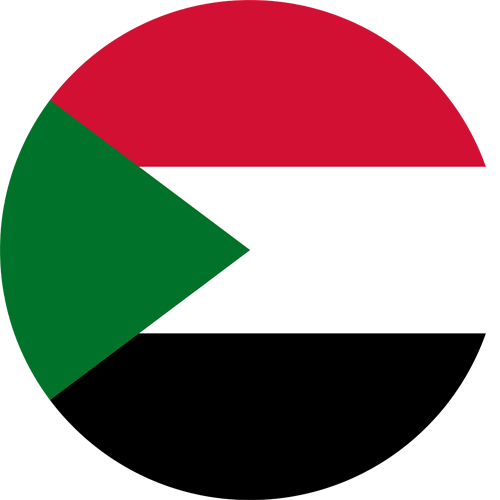
Resilience and survival in the camps of Nyala, South Darfur
Mention Nyala in South Darfur and red flags go up. But the less told story of the camps in Nyala - the story behind the headlines - is one of resilience and hope.
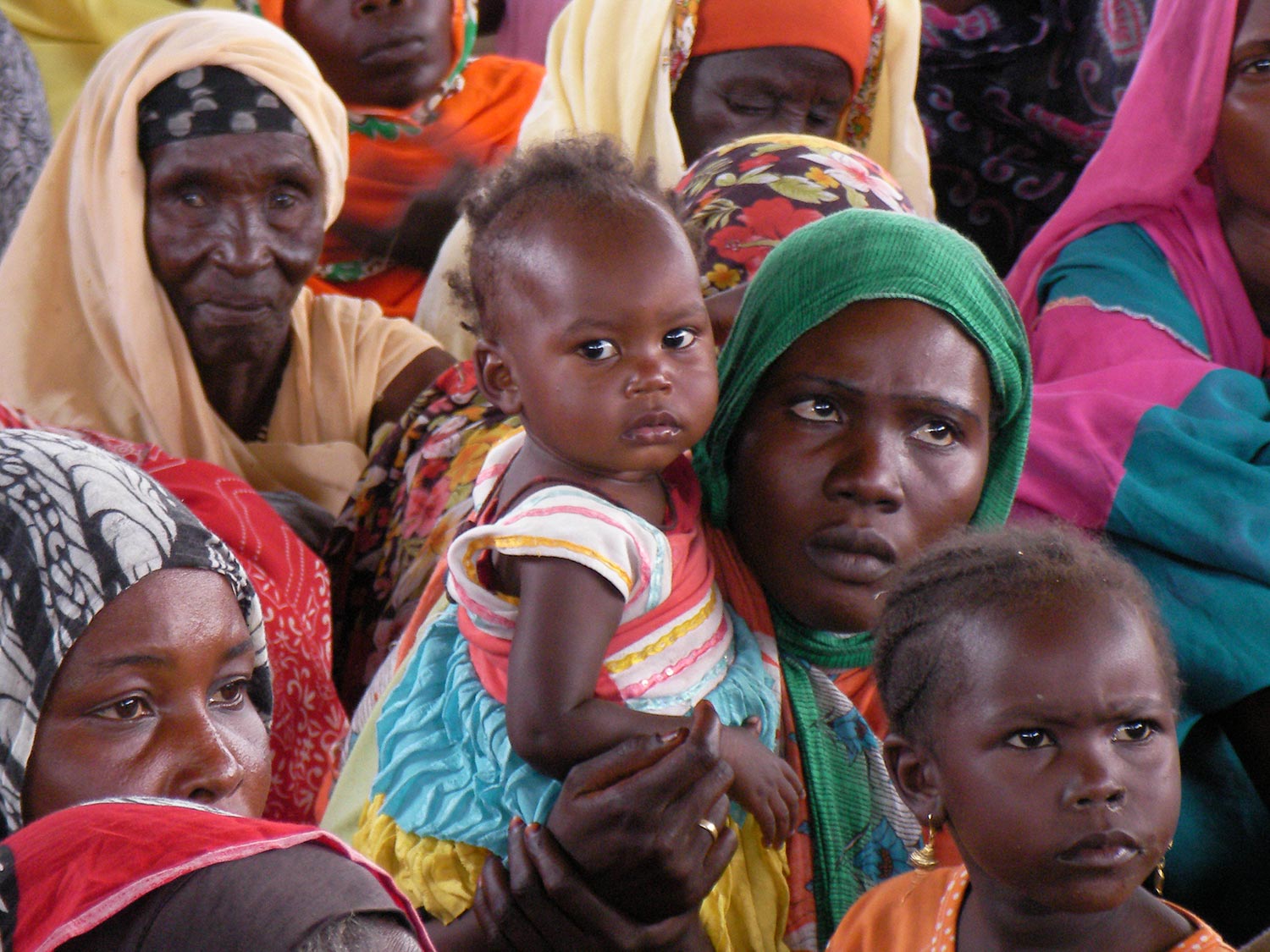
2014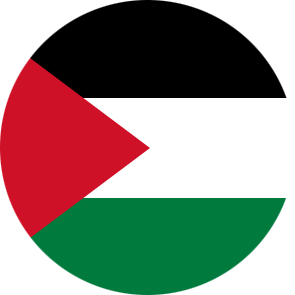
Safe motherhood in Palestine
In Palestine, access to reproductive, maternal and child healthcare is shaped to a large extent by the unstable political situation. The socio-economic levels, lifestyles and women’s position in Palestinian society is also a key determinant of demand for and access to these services. With support from the Japan Trust Fund, the Palestinian Family Planning and Protection Association implemented a project to improve access to reproductive, maternal and child health services among marginalized people in Hebron, Halhoul, Tulkarem and Gaza districts.

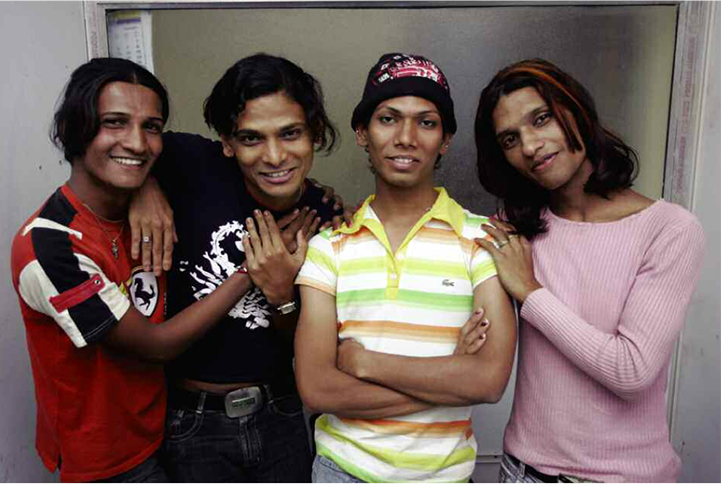
2014
Positive action in India
This fact sheet summarizes a project implemented by the Family Planning Association of India to improve the sexual and reproductive health and quality of life for people living with HIV – particularly men who have sex with men and transgender people.
2013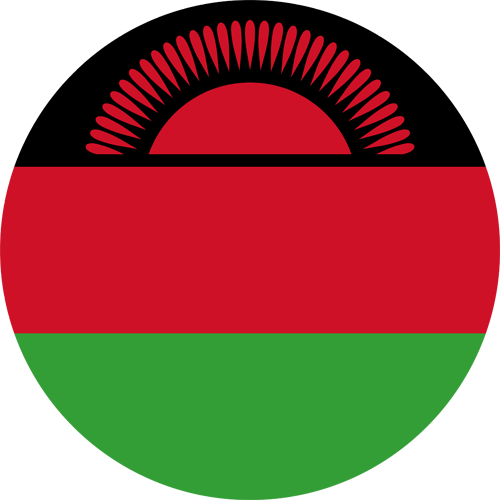
Living positively in Malawi
The potential benefits of investing in HIV programmes catering to the needs of young Malawians living with HIV are immense. This Fact Sheet summarizes a Family Planning Association of Malawi programme designed to increase use of integrated sexual and reproductive health and HIV services by young people living with HIV in Lilongwe, Dowa and Ntcheu Youth Life Centres.
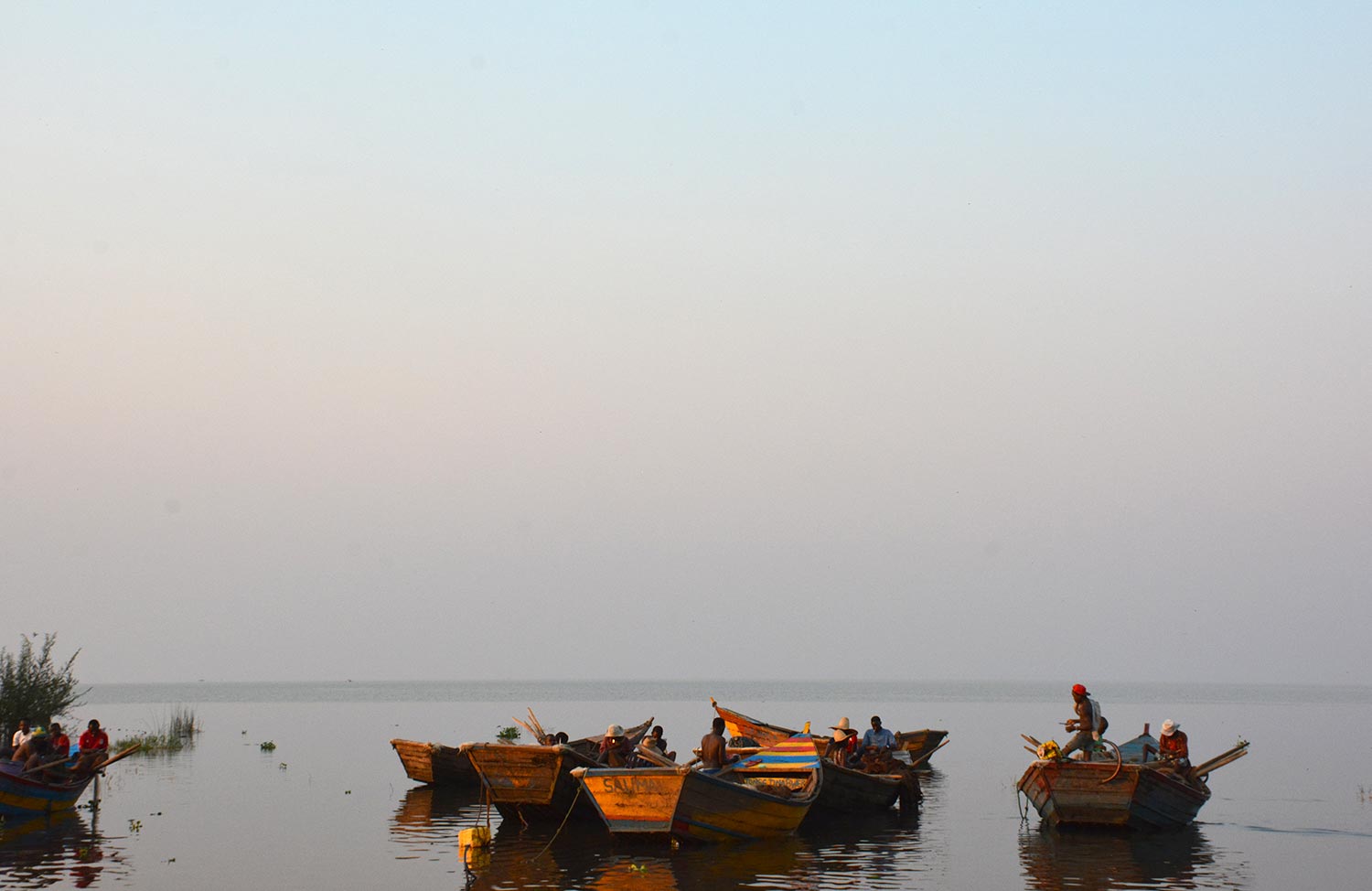
“My biggest gain from the project is my health. I never thought I would regain my health, thanks to IPPF JTF, thanks to FHOK.”
Joyce, client at the Nakuru Centre, FHOK
2013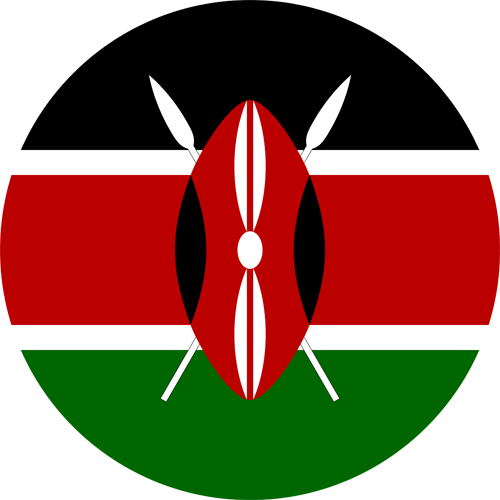
Integrated care in the Rift Valley
This fact sheet summarizes work undertaken by Family Health Options of Kenya to integrate HIV prevention and positive prevention for women and men in the Nakuru district.
2013
Care for pregnant women in Indonesia
This fact sheet summarizes a project implemented by the Indonesian Planned Parenthood Association to strengthen maternal and perinatal outcomes in Jayapura district of Papua region. With support from the Japan Trust Fund, the project followed the ‘EMBRACE’ model which aims to strengthen community-based preventive and clinical interventions to provide antenatal and postnatal continuum of care.
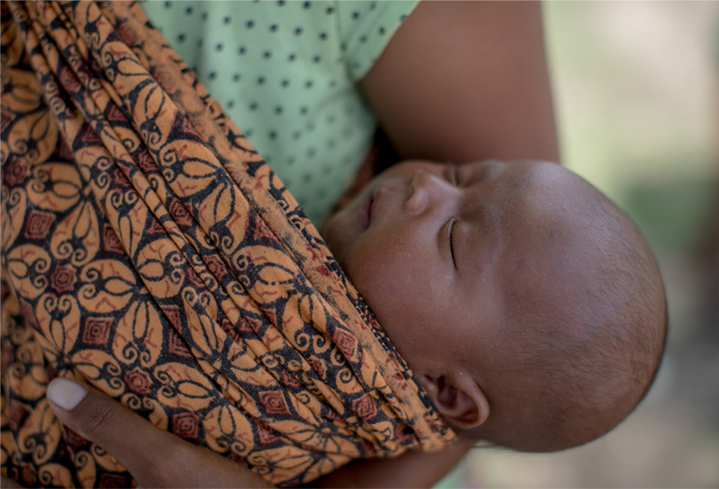
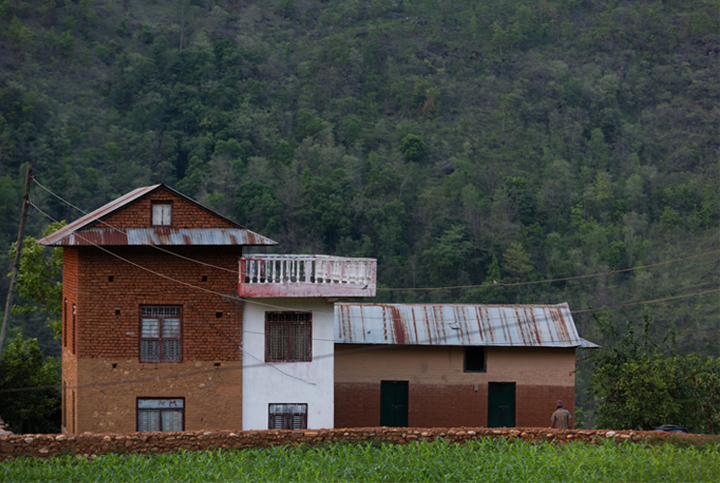
2012
Bridging the gap in Asia
This brief, Bridging the gap between ignorance and action, summarizes projects implemented in Asia to address growing HIV infection rates in this region. Supported by the Japan Trust Fund, the projects focus on integrating prevention with care and support, working with vulnerable groups, and targeting youth. Includes case studies from Bangladesh, Nepal, Vanuatu and China.
2012
Bridging the gap in Africa
This brief, Bridging the Gap Between Information and Services, summarizes a number of projects implemented in Africa to address the alarmingly high HIV infection rates in this region. Driven by the specific needs of each country, the projects funded by the Japan Trust Fund focused on three broad themes: integrating HIV prevention with care and support, working with vulnerable groups, and targeting youth. Includes case studies from Kenya, Mozambique, Uganda and Ghana.
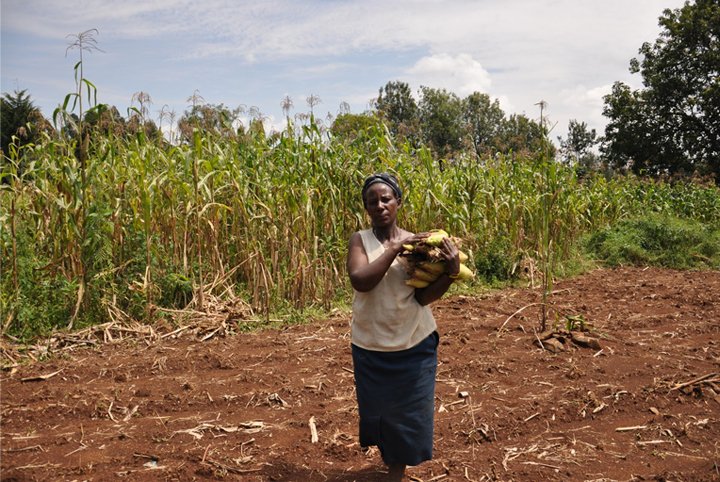
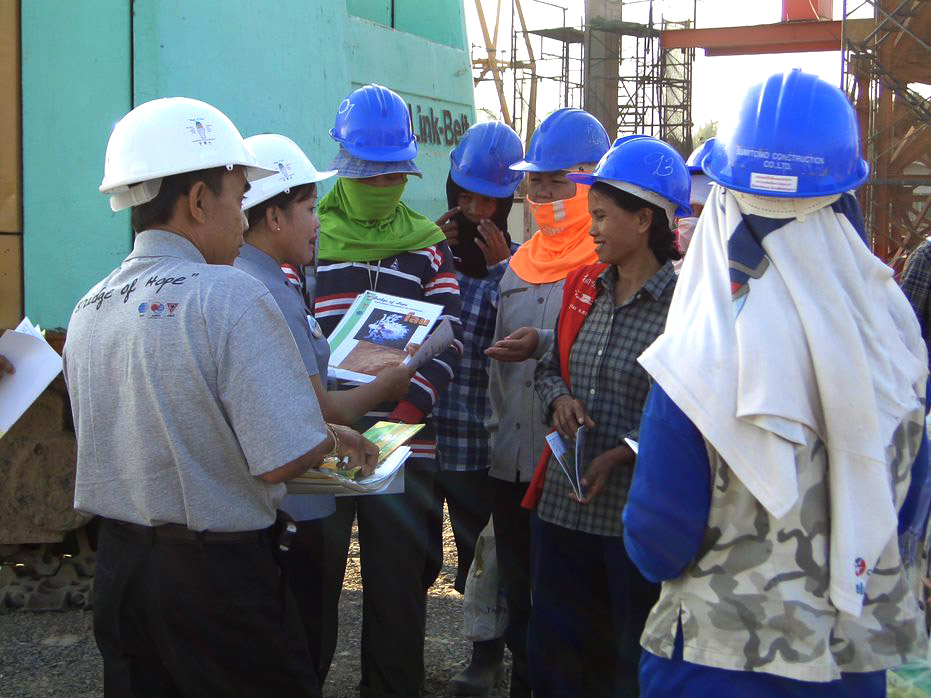
2012
Bridge of hope
The construction sector attracts a large number of migrant workers who are often at increased risk of acquiring HIV infection and more likely to pass on the infection to others at their source communities. The Japan Trust Fund supported a project to promote HIV/AIDS awareness and prevention among temporary workers and the local community during the construction of the Second International Mekong Bridge connecting Lao PDR and Thailand.
2012
Vending with hope
This short film showcases a project funded by the Japan Trust Fund which enabled the Family Planning Association of Malawi to deliver STI- and HIV-related services and implement a peer education programme aimed at the large number of young female and male vendors that descend on Mitundu market in rural Malawi twice a week.
when







